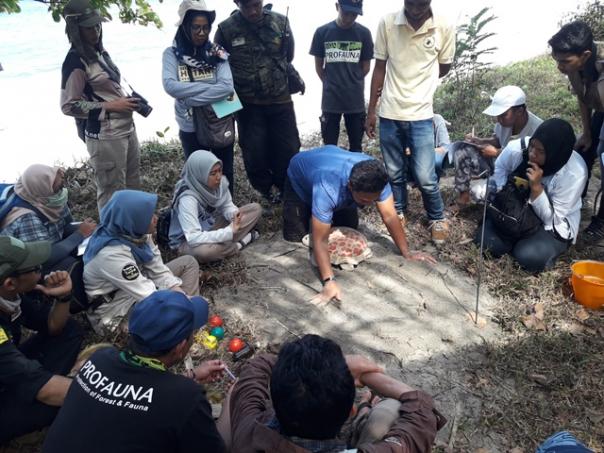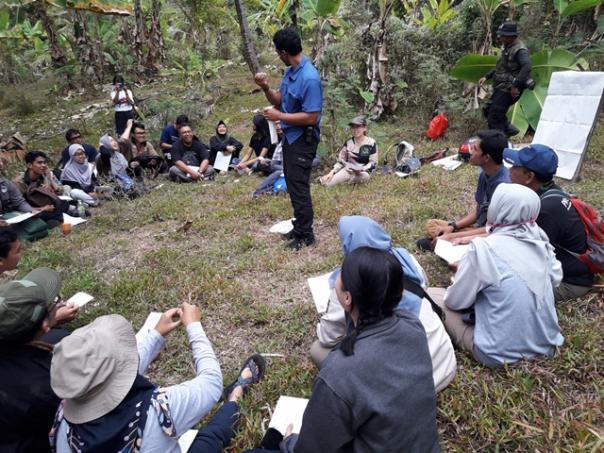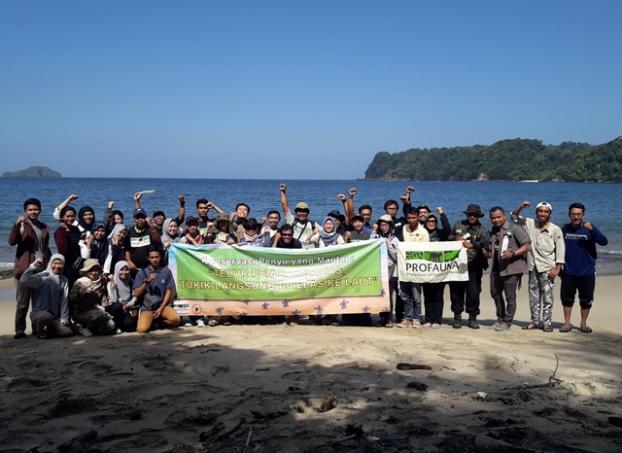Sea Turtle Conservation Done Right: Release Hatchlings to the Ocean Right Away!
Thirty conservation activists from all around Indonesia joined a training held by PROFAUNA Indonesia and Yayasan Penyu Indonesia (YPI/Indonesian Turtle Foundation) at Tamban Beach, Malang, East Java on 18 July 2019.
The training consists mostly of field practice, lead by Bayu Sandi, the director of YPI. Participants were given the opportunity to practice sea turtle evacuation, as well as eggs and hatchling relocation during the simulation session. The simulation devised sea turtle replicas,instead of alive animals. Bayu also requested some participants to act as turtles during evacuation simulation.
All the participants, who came from Malang, Surabaya, Probolinggo, Sidoarjo, Bandung, Jakarta, Luwuk, and Bontang, were having a great time. The practice session clearly was the most awaited and enjoyed moment for them. The intensive training took place from morning until afternoon, and Bayu used the rare opportunity to explain sea turtle identification and elaborate on the correct treatment of sea turtle hatchlings.
"Hatchlings must be released to the ocean soon as they break out from the eggs, there is no need to keep them in any kind of facility. The sooner they can get to the ocean the better, this greatly ensure better survival rate," explained Bayu, who runs a sea turtle conservation facility in Belambangan Island, Berau, East Kalimantan.
PROFAUNA Indonesia's founder, Rosek Nursahid, who also joined the training added, "I don't see any reason to keep hatchlings in facilities or farms instead of releasing them soon after they hatch. Sea turtle farming, also known as headstarting, requires huge resources, despite its lack of scientific basis."
In some places, PROFAUNA still find sea turtle farms who claim themselves as captive breeding facilities. The problem is, tourists are welcome to release young turtles to the ocean by donating certain amount of money which will be used to care for the turtles in those facilities. Such cost would not exist in the first place if the so called facilities release hatchlings right away.
At the end of the training, PROFAUNA distribute stainless steel drinking straws to all the participants
"Plastic straws are harmful for the environment because when they are improperly disposed and later reach the ocean, they become dangerous for sea turtles. We have seen cases where sea turtles mistook plastic straws as their food," said Bayu.



